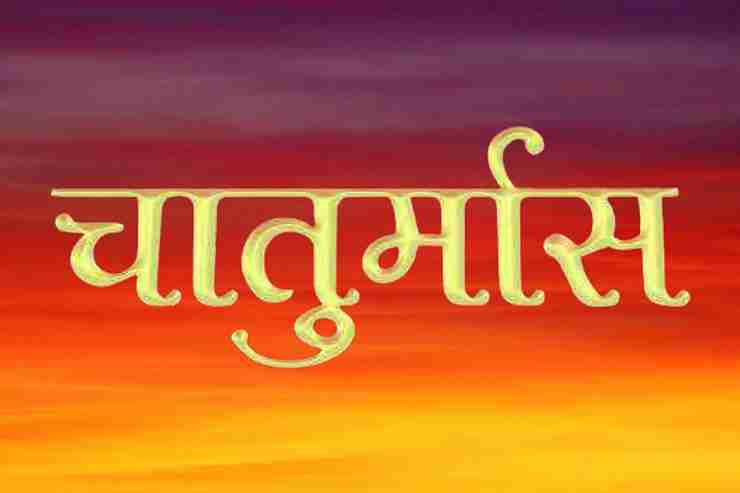Introduction
During the monsoon months, many Jains find themselves grappling with the challenge of maintaining spiritual discipline amidst daily routines. The hustle of modern life often overshadows the essence of Jain Chaturmas, leading to missed opportunities for spiritual growth. This period, however, offers a unique chance for introspection and adherence to Jain principles. By understanding the significance and practices of Jain Chaturmas, individuals can realign their lives with core values, fostering inner peace and spiritual advancement.
What is Jain Chaturmas?
Jain Chaturmas, also known as Chomasa or Chaumasa, is a four-month period during the monsoon season when Jain monks and nuns cease their travels and reside in one place. This practice aims to minimize harm to living beings, aligning with the principle of Ahimsa (non-violence). In 2025, Jain Chaturmas begins on July 6 (Ashadha Shukla Ekadashi) and concludes on November 3 (Kartik Shukla Ekadashi).
Significance of Jain Chaturmas
The Chaturmas period holds profound spiritual importance in Jainism. It is a time for intensified religious activities, including fasting, meditation, and scriptural study. Monks and nuns remain stationary to uphold the principle of non-violence, as traveling during the monsoon could inadvertently harm countless small organisms.
Key Practices During Jain Chaturmas
1. Stationary Residence
Jain ascetics stay in one location throughout Chaturmas to prevent harm to living beings that proliferate during the rainy season.
2. Fasting and Dietary Restrictions
Fasting is a central practice during Chaturmas. Many Jains observe various forms of fasting, such as:
- Ekasana: Consuming one meal a day.
- Biyasana: Having two meals a day.
- Aayambil: Eating one bland meal without spices, oil, or dairy.
- Upavasa: Complete fasting for a day or more.
These practices aim to purify the body and mind, fostering spiritual growth.
3. Scriptural Study and Meditation
Devotees engage in deep study of Jain scriptures and meditation, enhancing their understanding of Jain philosophy and reinforcing their commitment to spiritual principles.
4. Observance of Paryushan and Das Lakshan
During Chaturmas, significant festivals like Paryushan and Das Lakshan are observed. These festivals emphasize introspection, forgiveness, and the strengthening of one’s spiritual resolve.
Jain Chaturmas Vrat (Vows)
Vrats, or vows, taken during Chaturmas are commitments to specific practices aimed at spiritual purification. Common vrats include:
- Truthfulness: Always speaking the truth.
- Non-violence: Avoiding harm to any living being.
- Celibacy: Abstaining from sexual activity.
- Non-possessiveness: Limiting material possessions.
These vows help individuals cultivate discipline and align their lives with Jain ethical standards.
Food Restrictions During Jain Chaturmas
Dietary practices during Chaturmas are stringent, reflecting the principle of Ahimsa. Key restrictions include:
- Avoidance of Root Vegetables: Foods like potatoes, onions, and garlic are avoided, as harvesting them kills the entire plant and harms soil organisms.
- No Night Eating: Consuming food after sunset is prohibited to prevent harm to microorganisms that become active at night.
- Use of Boiled Water: Water is boiled before consumption to eliminate microorganisms.
These practices aim to minimize harm to all forms of life.
Jain Chaturmas Niyam (Rules)
Adhering to specific rules during Chaturmas helps maintain spiritual focus:
- Regular Prayer and Meditation: Daily engagement in spiritual activities.
- Charitable Acts: Donating to the needy and supporting religious institutions.
- Avoidance of Luxuries: Leading a simple life, free from indulgence.
These rules foster a disciplined lifestyle conducive to spiritual growth.
Importance of Jain Chaturmas
Chaturmas serves as a period of spiritual rejuvenation. By observing its practices, individuals can:
- Enhance Self-Discipline: Through fasting and adherence to vows.
- Deepen Spiritual Understanding: Via scriptural study and meditation.
- Promote Non-violence: By minimizing harm to all living beings.
This period offers a structured opportunity for personal and spiritual development.
FAQs
Q: Can laypersons observe Chaturmas?
A: Yes, laypersons can participate by following dietary restrictions, engaging in prayer, and observing vows to the extent possible.
Q: Is it mandatory to fast during Chaturmas?
A: While fasting is encouraged, individuals should consider their health and consult with spiritual guides to determine appropriate practices.
Q: Why are root vegetables avoided?
A: Harvesting root vegetables destroys the entire plant and harms soil organisms, conflicting with the principle of non-violence.
Conclusion
Jain Chaturmas is a sacred period dedicated to spiritual growth and ethical living. By observing its practices, individuals can align their lives with the core principles of Jainism, fostering inner peace and spiritual advancement. Embracing the discipline of Chaturmas offers a path to deeper understanding and harmony with all forms of life.
